
Voters could be forgiven for feeling a bit of whiplash over the political events of this summer.
At the beginning of one weekend in July, former President and Republican nominee Donald Trump survived an assassination attempt in Pennsylvania and by the end of the following weekend, current President Joe Biden was out of the race and Vice-President Kamala Harris was well on her way to becoming the Democratic presidential nominee.
For Maurice Murray, who moved to Colorado from Chicago 15 years ago, his choice this fall will come down to voting for the right person for the job.
“Take care of the welfare of the people and the protection of our constitution. And if a person is talking about putting corporations in front of people, I'm here to vote that down,” Murray said.
Murray attended the Aurora chapter of the NAACP’s ‘5280 Good Trouble’ event at the Community College of Aurora last weekend.
It was the launch of a statewide Get Out the Vote effort to encourage Black voters in particular to return their ballots this fall.
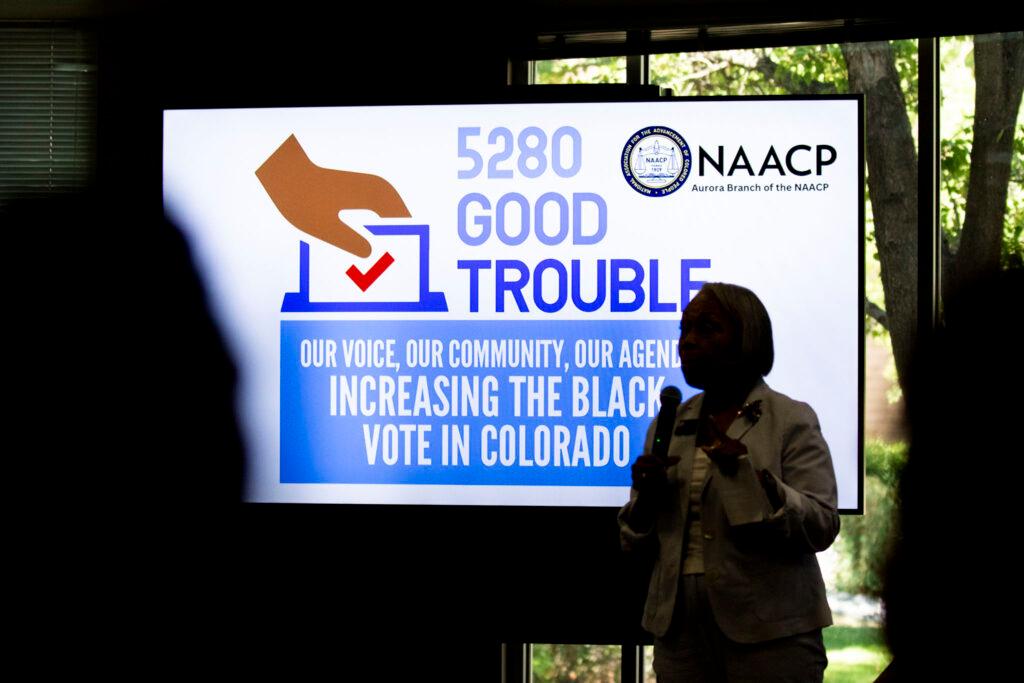
The phrase “good trouble” is a nod to the life and legacy of the late civil rights leader and U.S. Congressman John Lewis. Among the many nonviolent protests he participated in, Lewis took part in the Selma to Montgomery marches to fight for African Americans’ right to vote, which led to the Voting Rights Act of 1965. Lewis asked Americans to get into “good trouble” in the fight for civil rights.
“I think people already know in their heart how they're going to vote. Just our problem is that we don't get out to vote,” said Rev. Dr. Thomas Mayes, Pastor of Living Water Christian Center during the Aurora event.
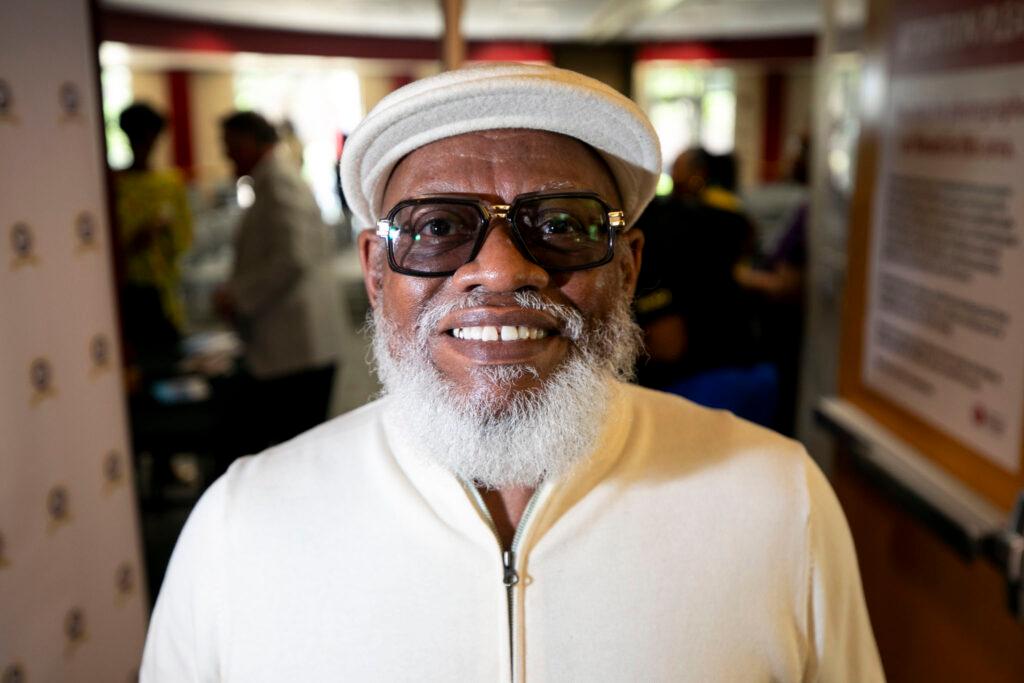
According to 2022 statistics from the Kaiser Family Foundation, only 55 percent of Colorado's Black population is registered to vote, and only 28.3 percent voted in the midterm elections.
Nationwide, the Pew Research Center projects the number of eligible Black voters to reach 34.4 million for the general election in November. That’s a 7 percent increase from four years ago. Coloradans make up only 5 percent of the nation’s eligible Black voters.
“We've got to get people out to vote. I don't care which way you vote. We must get out to vote and if we all get out to vote, we'll get the right person in the office,” said Mayes, who is also a Vietnam War Veteran.
The Aurora Chapter of the NAACP and other local Black organizations plan to hold numerous voter registration drives in the area in November’s Elections.
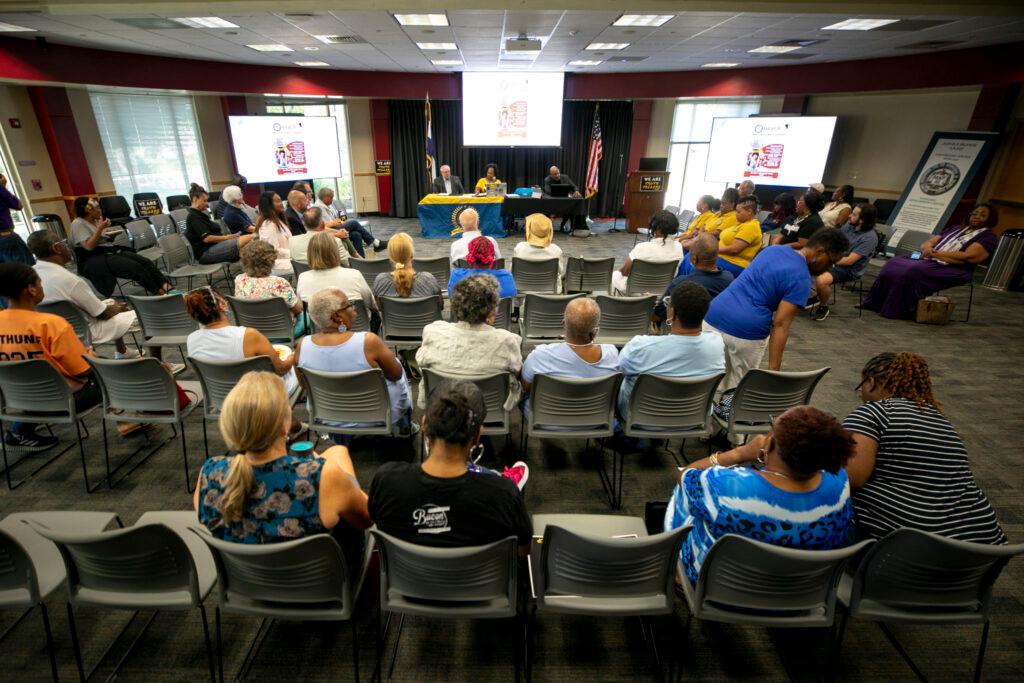
Marlene Price remembers the first time she voted. She was born in Denver but didn’t grow up in the state because her father was in the military. She returned for high school and college and cast her first vote in Denver.
Price, who now lives in Aurora, believes that the Black vote is more important now after President Trump’s remarks about people “not voting again” if he’s elected.
“If we don't vote, we don't use our voice. We can't say anything about what happens to us,” Price said.
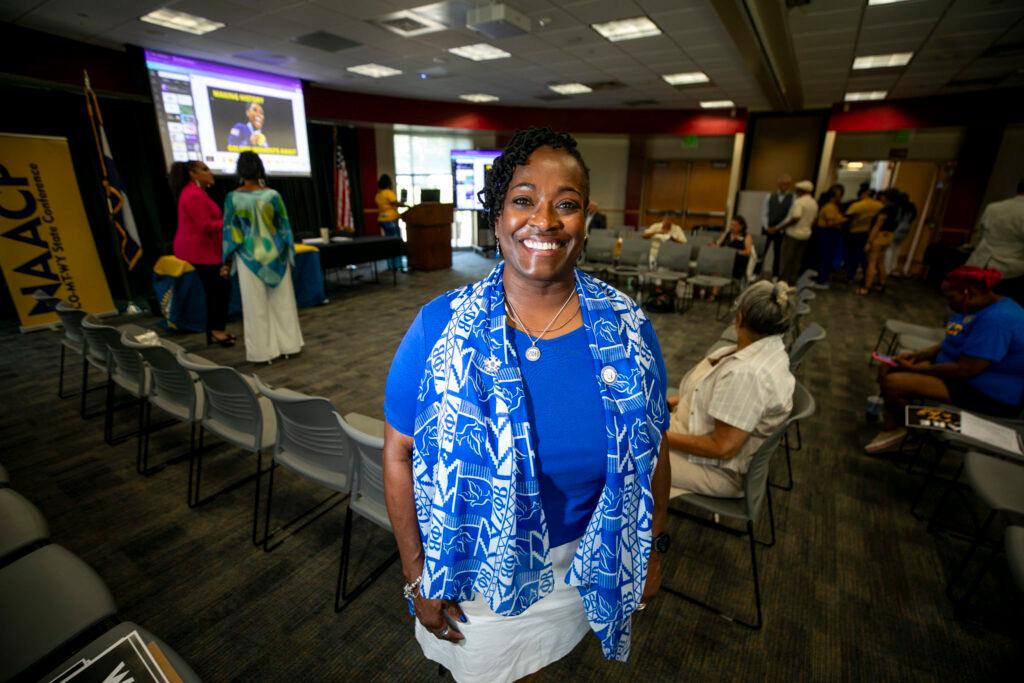
Price hopes voters won’t stop at the top of their ballots either.
“The people who impact your life the most is the people on your school board, the people who are on your council, obviously your mayor,” she said. “Start and make sure you vote at your local level.”
With Harris making history as the first Black woman to be a major party nominee for president, race has become an even more prominent factor in this election.
During an interview at the National Association of Black Journalists convention in Chicago, former President Trump questioned Harris’ commitment to the Black community and her own racial identity. Harris’ father is Afro-Jamaican. Her mother is Indian. She graduated from Howard University, a historically Black university in Washington, D.C.
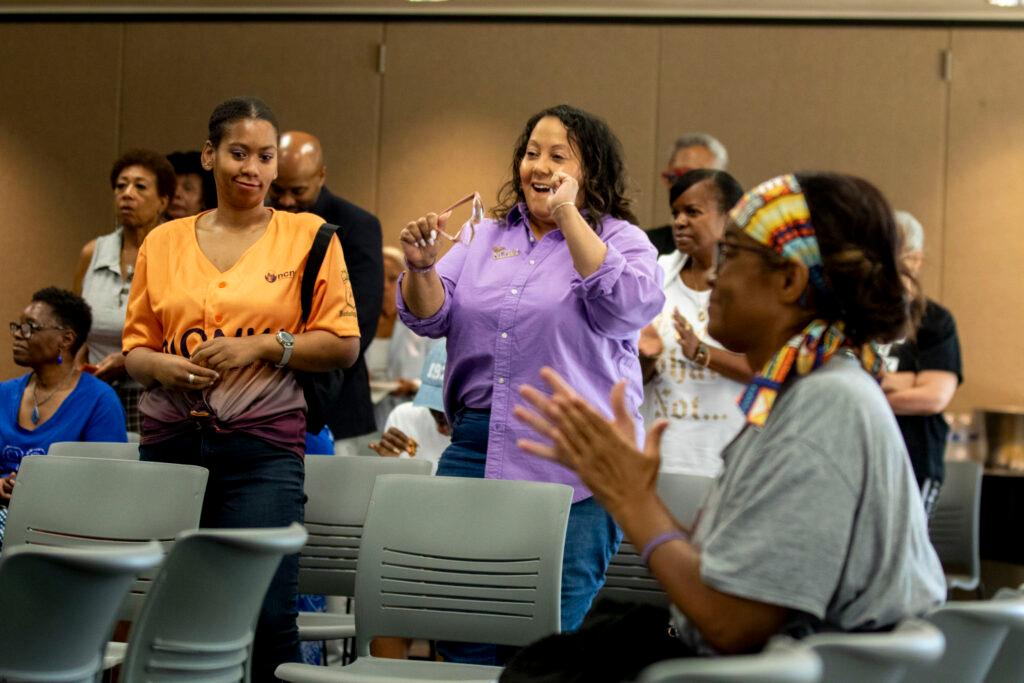
Like Harris, Price is a member of a Black sorority, in her case, Zeta Phi Beta Sorority, Inc. She recently saw Harris speak at the organization’s Grand Boule in Indianapolis and said it was inspiring to see someone like her endorsed for the Democratic presidential nomination.
“If you are female, if you are any woman of color, you are going to be inspired because what's that line? If you see it, I will achieve it. I don't have to explain to her some of the stuff we go through because she's been through it,” said Price, who is Vice President of Programs for her sorority’s local chapter in Aurora. “She understands that. And not saying that Biden or any other man (doesn’t), but it helps to know that they've been through that experience too.”
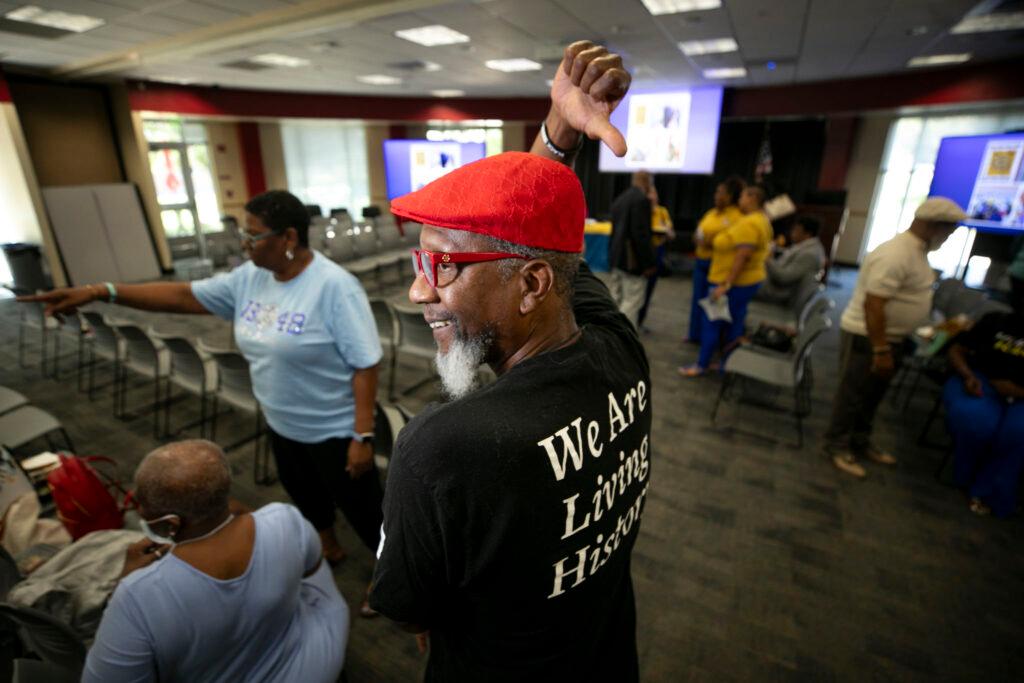
Black male voters — how to reach them and get them involved — were also a topic of discussion at the “Good Trouble” launch.
Mayes says there are a lot of contributing factors as to why fewer members of that particular demographic vote.
“You have to begin to think about how many Black males are imprisoned and they don't vote. How many of them are disenfranchised so they don't vote,” Mayes said. “Those ones on the outskirts… Those people, we've got to get them in a position where they understand how important it is for them to vote, so we can start thinking outside the box and get those Black men outside the box to vote.”









